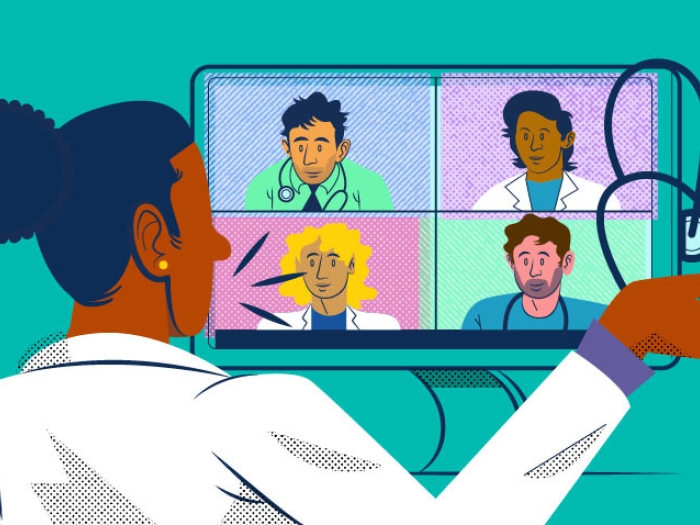The United Asian American Medical Student Association unveils a social media campaign designed to amplify diverse voices in support of diversity, equity and inclusion.
10:31 AM
Author |

The United Asian American Medical Student Association (UAAMSA) at the University of Michigan Medical School recently developed a platform for aspiring physicians to share their personal reflections and thoughts regarding the ongoing fight for social justice.
"The Stories We Share (TSWS) platform was initially established as a response to recent violence and negative rhetoric against the Asian American community due to the COVID-19 pandemic," says Aurelie Tran, a rising second-year medical student and member of the UAAMSA leadership team. "Heightened police brutality towards the Black community also inspired our cause because as minorities, we are all in this together," says Francine Moriguchi, who is also a rising second-year medical student and a part of the leadership team.
The narrative-based social media campaign, entirely run by students, is designed to address and organize issues regarding diversity, equity and inclusion within the health care sphere and beyond.
"As Asian Americans, we know that it's important for us to acknowledge our role in perpetuating white supremacy and racism," says Curtis Kuo, another rising second-year medical student on the UAAMSA team. "And that is why we reached out to our peers for this important and timely effort."
Kuo adds that as physicians-in-training, the UAAMSA created the TSWS platform as a space for students to help dismantle anti-Blackness and colorism within the Asian American and Pacific Islander (AAPI) community, while simultaneously amplifying the voices of people of color.
"We hope that together, by sharing the narratives that shape our realities, we can hold each other accountable and build a foundation for greater understanding when it comes to fighting the racism and inequality that pervades health care," says Moriguchi. "We also know that it's important to address the many harmful narratives portrayed in discourse and media through our daily actions."
UAAMSA was founded in 1992 to both support and represent the growing number of Asian American students entering the U-M Medical School. It now actively acknowledges that it is critical for its members to engage others to take important steps in combatting racism and promoting health equity.
"Now that the TSWS platform is live on Instagram, Twitter and Facebook, we will continue sharing stories written by AAPI individuals in collaboration with other BIPOC communities to serve as a model for dismantling racism amongst ourselves and others," says Tran. "The time is now for us to move past simply being an ally and instead, also working towards real, tangible action and change."
MORE FROM THE LAB: Subscribe to our weekly newsletter
The TSWS team reached out to their peers at the medical school as a call to action, asking them to join the campaign by sharing stories on their platform. And while the UAAMSA team realizes it takes more than social media to be a true advocate for social change, they hope that a public-facing tool will hold more people, starting with themselves, accountable for their actions.
"In addition to unique storytelling, this platform will house educational resources and elevate the work of existing activists within the AAPI community to better engage with AAPI history and how that informs our relationship with the Black community," says Tran.
As the campaign progresses, the team hopes to facilitate discussions regarding a wide range of related topics, including:
-
Racial ambiguity in Asian American culture;
-
Disparities in health behaviors, delivery and outcomes;
-
Horizontal discrimination, colorism and anti-Blackness amongst BIPOC communities;
-
The impact of COVID-19 on the AAPI and other BIPOC communities; and
-
The AAPI monolith and model minority myth.
Kuo adds that the UAAMSA believes that practicing medicine should be synonymous with practicing social justice and health equity. Therefore, their overarching goal is to change the health care system for the better.
"Ultimately, health care providers must serve the needs of patients of all colors and of varying backgrounds," says Kuo. "That is why we created the TSWS campaign, to listen to the stories of others and work towards true health equity for all."
You can view The Stories We Share campaign on Facebook, @the.stories.we.share on Instagram and @TSWS_umich on Twitter.

Explore a variety of health care news & stories by visiting the Health Lab home page for more articles.

Department of Communication at Michigan Medicine
Want top health & research news weekly? Sign up for Health Lab’s newsletters today!





